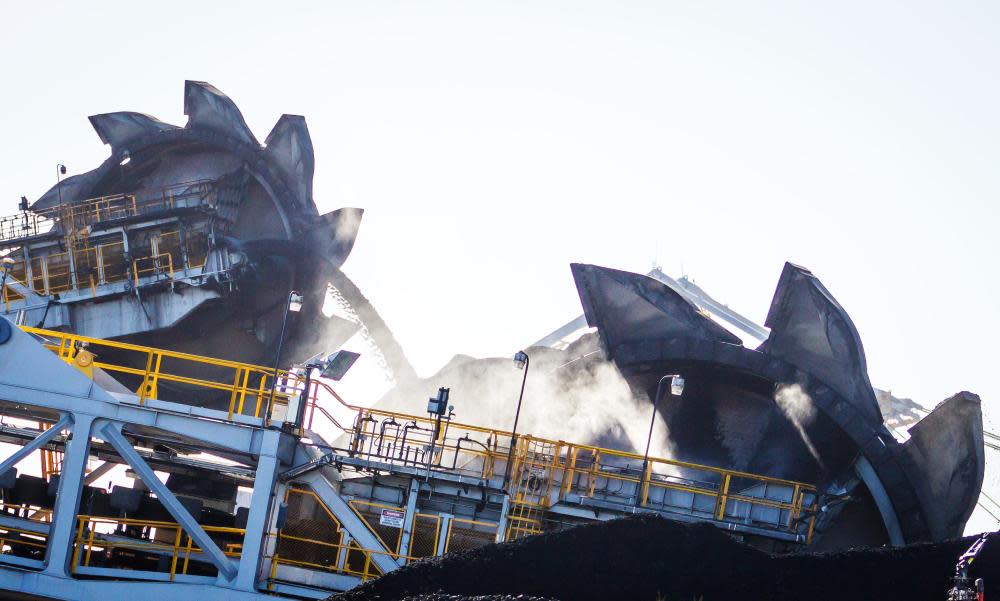Minerals Council says it makes political donations to gain access to MPs

The Minerals Council of Australia has conceded it makes political donations and pays to attend fundraisers to gain access to members of parliament in a submission to a Senate inquiry.
The frank admission – which reflects a commonly held belief about the role of money in politics – sticks out because major corporations and lobby groups by and large said they made donations to support democracy.
The Senate select committee into the political influence of donations, led by the Greens leader, Richard Di Natale, asked significant entities why they made political donations.
In its response to the committee, the MCA said that it made donations amounting to $33,250 in 2015-16 and $57,345 in 2016-17, which were declared to the Australian Electoral Commission. The majority in both years went to the Liberal or National parties and associated entities.
The MCA said it paid $25,000 each to the Federal Labor Business Forum and the Australian Business Network for membership subscriptions and its staff “occasionally attend fundraising dinners hosted by individual members of parliament”.
“The MCA makes the political contributions detailed above because they provide additional opportunities for the MCA to meet with members of parliament,” it said. “The MCA uses these opportunities to update members of parliament about conditions in the Australian minerals industry and the policy priorities of the MCA.”
Di Natale said: “Our democracy is broken when a major mining lobby group feels comfortable publicly saying they pay for access to the old parties without fear of any consequences.”
The Australian Southern Bluefin Tuna Industry Association – which donated $320,000 to the Liberal Party in 2013 – described the decision as an “impulsive mistake” made out of frustration due to an alleged broken promise by a minister.
Its chief executive, Brian Jeffriess, submitted that the body now stays “as far away from political parties as possible – because politics scares us”.
“We do not understand it – and, frankly, the less we have to do with it the better.”
Crown Resorts, the Insurance Council of Australia, the Financial Services Council and ANZ all said they made donations to support the democratic process.
The Insurance Council of Australia explained this was because “public funding is inadequate for parties to mount modern election campaigns and we wish to contribute to a stable political environment”.
Crown Resorts noted parties “rely heavily on donations in order to communicate their messages and policies to the Australian public”.
Nine Entertainment Co said it made annual donations to the business forums of the Labor party and Liberal party, “which provide informative policy briefings and networking events”.
Macquarie Bank said it supported the government and opposition “through paid attendance at events and membership of [their] business forums”.
These “fee-for-service expenditures” made up the “vast majority” of their political expenditure, a total of 93% in 2015-16 compared with just 7% on donations.
Westpac and the Commonwealth Bank said they did not make cash donations to political parties but paid and disclosed “other expenditure” to attend conferences, policy forums and industry events.
Di Natale said cash-for-access dinners “are being used to hide millions of dollars” and laws should be changed to require they be declared as political donations.
The joint standing committee on electoral matters is also looking at political donations through inquiries into the 2016 federal election and the government’s bill to ban foreign political donations.
The deputy chair of JSCEM, the Labor MP Andrew Giles, said it was “urgent to get on with the job of increasing transparency and getting big money out of politics so we can rebuild trust in our democracy”.
Giles said the MCA’s admission “also demonstrates that political parties are different to other groups that campaign on particular issues [and] regulation has to recognise this”.
Labor supports the government’s call for a ban on foreign donations to political parties but does not believe it should apply to third-party activist groups as the Coalition has proposed.
The Senate committee will hold a hearing on 30 January.

 Yahoo News
Yahoo News 
